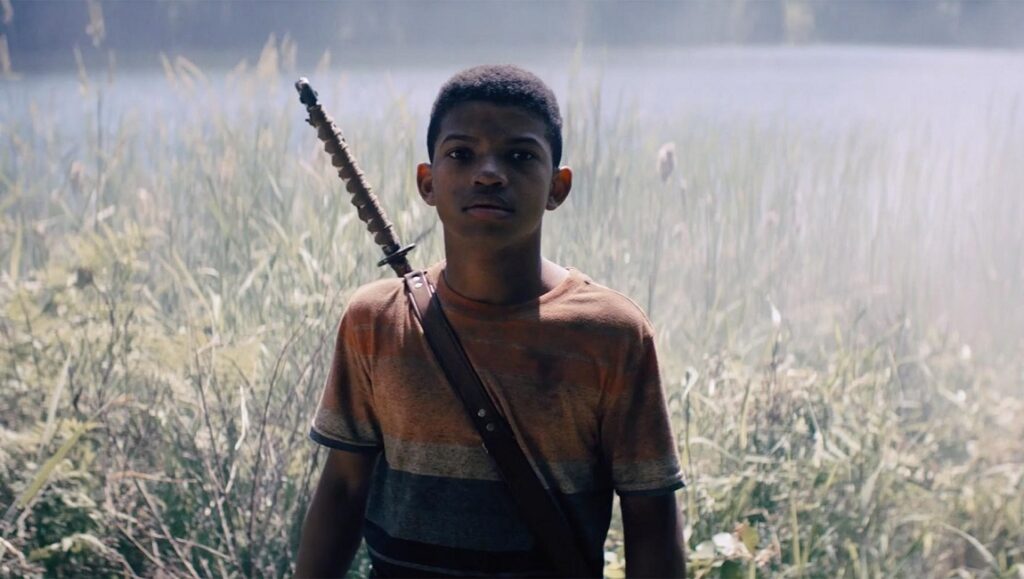The Water Man is a slight film that gets bogged down under the weight of its heavy themes and nondescript myth-making.
Let’s just be blunt for a moment: if The Water Man weren’t the directorial debut of actor David Oyelowo, it’s doubtful we would have ever heard from the film again after its TIFF premiere last year. It’s not that it’s necessarily a bad film, but rather that it’s a patently unremarkable one which happens to have a notable name attached. Given its limited appeal and considering the current state of theatrical releases is still rather dire, it’s likely The Water Man still won’t make much of a splash. The film takes the shape of a family-friendly adventure film. A young boy (Lonnie Chavis) pursues a figure of local myth in order to learn his secret of immortality so that can save his mother (Rosario Dawson), who is dying of leukemia. He is joined on his quest by Jo (Amiah Miller), a rebellious girl with a difficult home life who claims to hold the secret to finding the legendary Water Man. Oyelowo himself plays the boy’s somewhat distant father, who is unable to reconcile his own grief over his wife’s impending death with his son’s needs. It’s all a bit Bridge to Terabithia-lite, with the supernatural elements that mark the central quest all anchored by real-world explanations, of which the film’s young protagonists are unaware.
Indeed, that comparison offers the general tenor of the film — pleasant, inoffensive family fare — but therein lies the problem: none of this is particularly interesting. The young leads, especially Chavis, are admittedly stellar, turning in remarkably lived-in, naturalistic performances that belie their age. But the script doesn’t do them (or anyone else) any favors, trapping them in a web of clichés and genre tropes from which there is no escape. At only 92 minutes, The Water Man moves briskly enough, but never manages to establish the relationships that should make up its emotional foundations. Oyelowo displays a keen eye for framing and musters some appealing visuals, but it’s difficult not to long for more than the modicum we’re given here. For a film about a mythic quest, no matter how insular, it feels disappointingly small, and its emotional core seems strangely detached, unable to reconcile its disparate elements into any cohesive and satisfying whole. By separating the family unit for much of the film, the conflict between the parents and their child remains frustratingly abstract, and its thesis about how hope in the face of hopelessness can sometimes drive people to madness ends things on an oddly downbeat note (leaving the father/son conflict mostly unresolved); given the film’s youth-skewing (sub)genre origins, sticking with a message of acceptance of death’s inevitability was probably the stronger way to go. But as ultimately constructed, The Water Man’s themes land too heavily for such a slight film, never quite managing to rise to the level of its own ambitions.


Comments are closed.